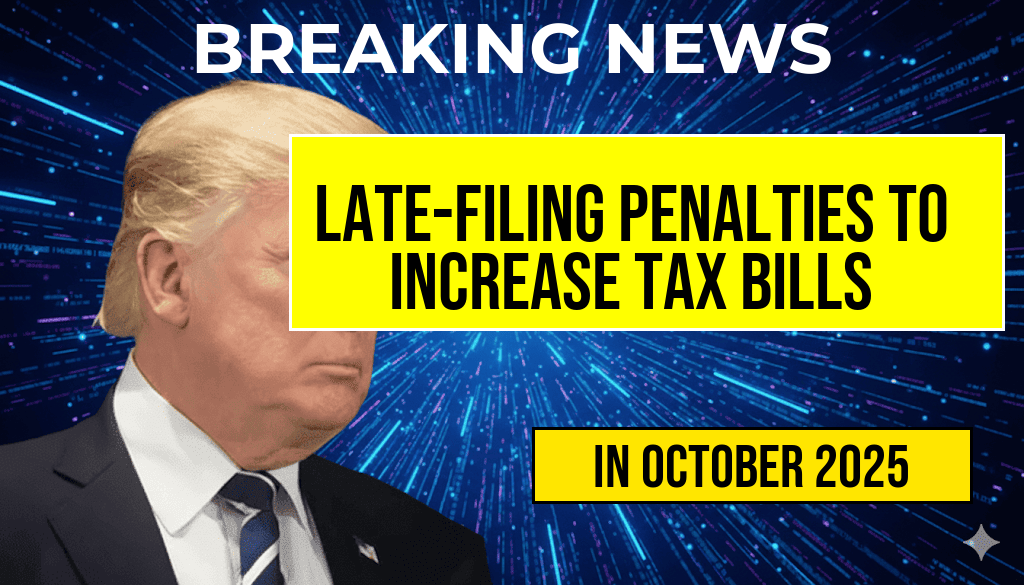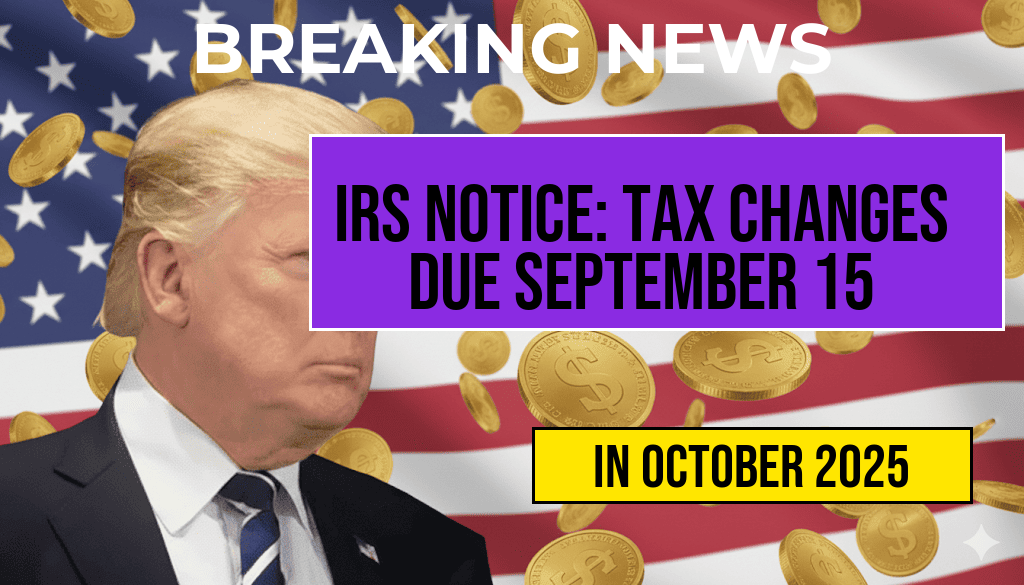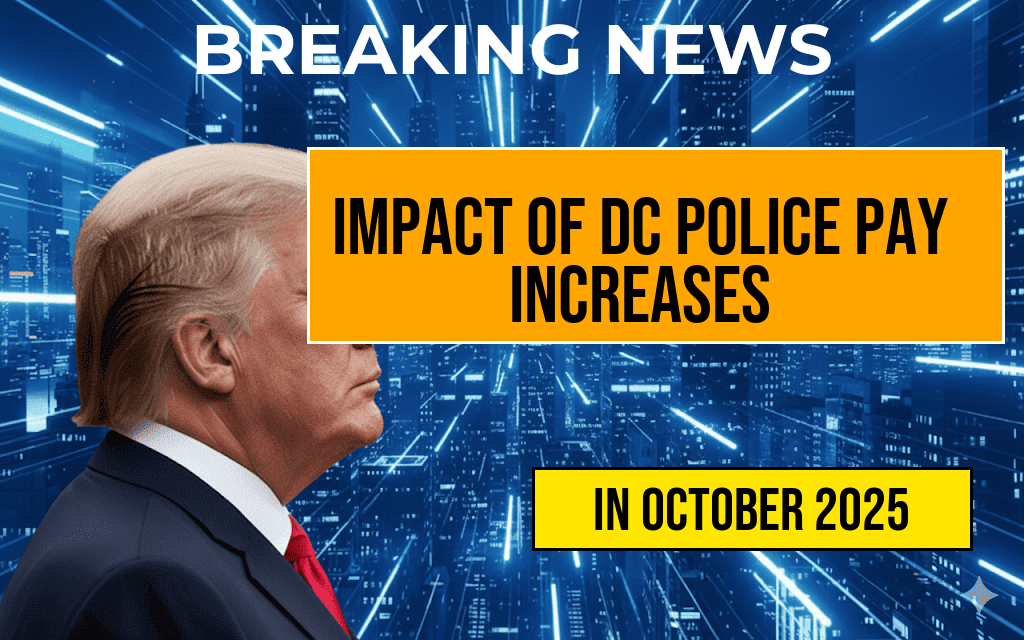Taxpayers may face significantly higher bills starting in 2026 due to anticipated increases in late-filing penalties. With the IRS expected to enforce stricter compliance measures, individuals and businesses who fail to meet tax deadlines could see their financial liabilities rise substantially. The new penalty structure aims to encourage timely filings and ensure that taxpayers adhere to the regulations set forth by the federal government. As the IRS prepares for these changes, experts are advising taxpayers to familiarize themselves with the potential consequences of late submissions to avoid unexpected costs.
What to Expect in 2026
The IRS has indicated that the late-filing penalties will be adjusted to better reflect inflation and the growing complexities of tax compliance. According to the latest IRS guidelines, the penalties could increase by as much as 25%, impacting both individual and corporate taxpayers.
Current Penalty Structure
As it stands, the penalties for failing to file taxes on time can vary based on the amount owed and how late the return is filed. Here’s a breakdown of the current penalty structure:
| Penalty Type | Current Rate |
|---|---|
| Failure to File Penalty | 5% of unpaid taxes per month (maximum 25%) |
| Failure to Pay Penalty | 0.5% of unpaid taxes per month (maximum 25%) |
Projected Changes
The proposed changes to the penalty system would adjust both the failure to file and failure to pay penalties. As the IRS aims to enhance compliance, the following adjustments are anticipated:
- Failure to File Penalty: Expected to increase to 6.25% per month.
- Failure to Pay Penalty: Projected to rise to 0.625% per month.
Implications for Taxpayers
For individuals and businesses alike, these changes could lead to a dramatic increase in overall tax liabilities. The IRS’s focus on enforcement is expected to discourage late filings by making the financial consequences more severe. Taxpayers who have historically filed late or neglected to file altogether may find themselves in increasingly precarious situations as the penalties mount.
Strategies to Avoid Penalties
Tax professionals recommend several strategies to help taxpayers avoid falling victim to increased penalties:
- Plan Ahead: Begin preparing tax documents early to ensure timely filing.
- Utilize Extensions: If needed, file for an extension to avoid penalties for late filing.
- Stay Informed: Keep up-to-date with IRS announcements and changes to tax regulations.
Seeking Professional Help
Given the anticipated changes, many taxpayers are considering enlisting the help of tax professionals to navigate the complexities of the new penalty structure. Certified public accountants (CPAs) and tax advisors can provide personalized guidance, ensuring that individuals and businesses remain compliant while minimizing their tax liabilities.
Resources for Taxpayers
For those looking to educate themselves further on this topic, several authoritative resources are available:
As the 2026 deadline approaches, taxpayers are encouraged to take proactive measures to understand the implications of late-filing penalties and to prepare accordingly. By doing so, they can avoid the financial strain that may come with failing to comply with new IRS regulations.
Frequently Asked Questions
What are the expected late-filing penalties for 2026?
The late-filing penalties for 2026 are expected to increase significantly, potentially adding hundreds of dollars to your tax bills. This increase is part of the IRS’s effort to encourage timely filing and compliance.
How will the increase in penalties affect my tax return?
If you file your tax return late, the increased penalties could result in a substantial addition to your overall tax liability, making it crucial to file on time to avoid higher costs.
Are there any exemptions to the new late-filing penalties?
While certain circumstances may provide relief from late-filing penalties, such as natural disasters or health emergencies, it’s essential to check the IRS guidelines for any specific exemptions or qualifications that may apply.
What can I do to avoid late-filing penalties in 2026?
To avoid late-filing penalties, ensure that you file your tax return by the deadline. Consider e-filing for quicker processing, and if you’re unable to meet the deadline, file for an extension to minimize penalties.
Will these penalties impact my tax refund?
Yes, if you are entitled to a tax refund and file late, the late-filing penalties may reduce the amount you receive. It’s best to file promptly to ensure you receive your full refund without deductions for penalties.








